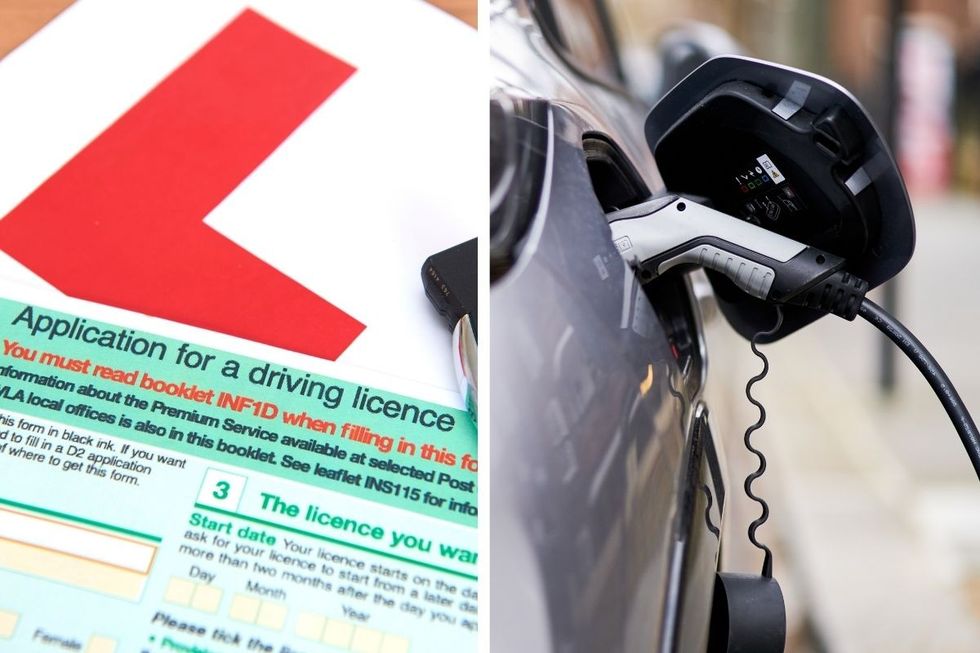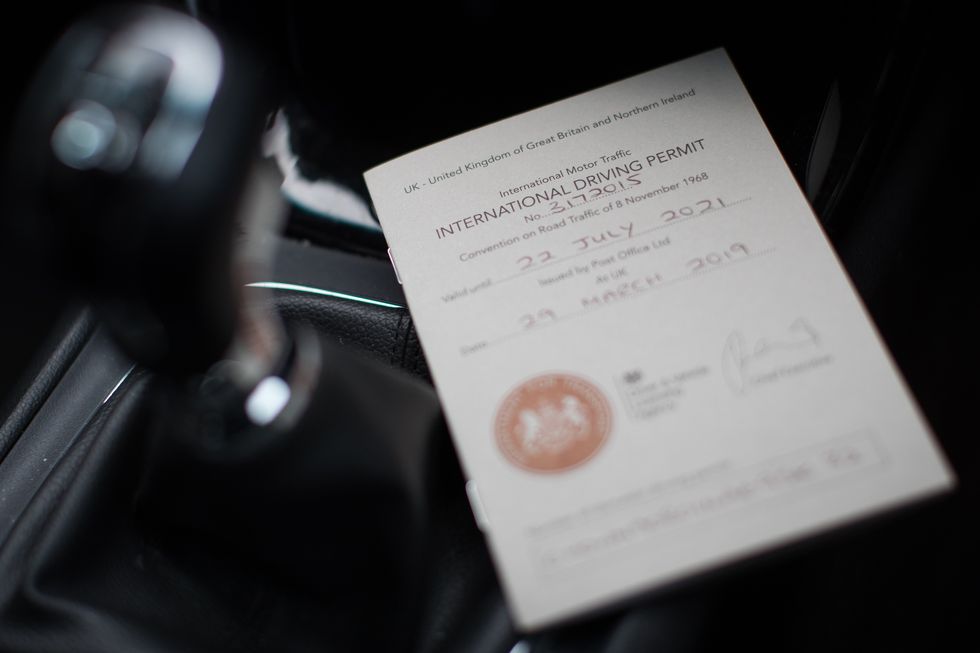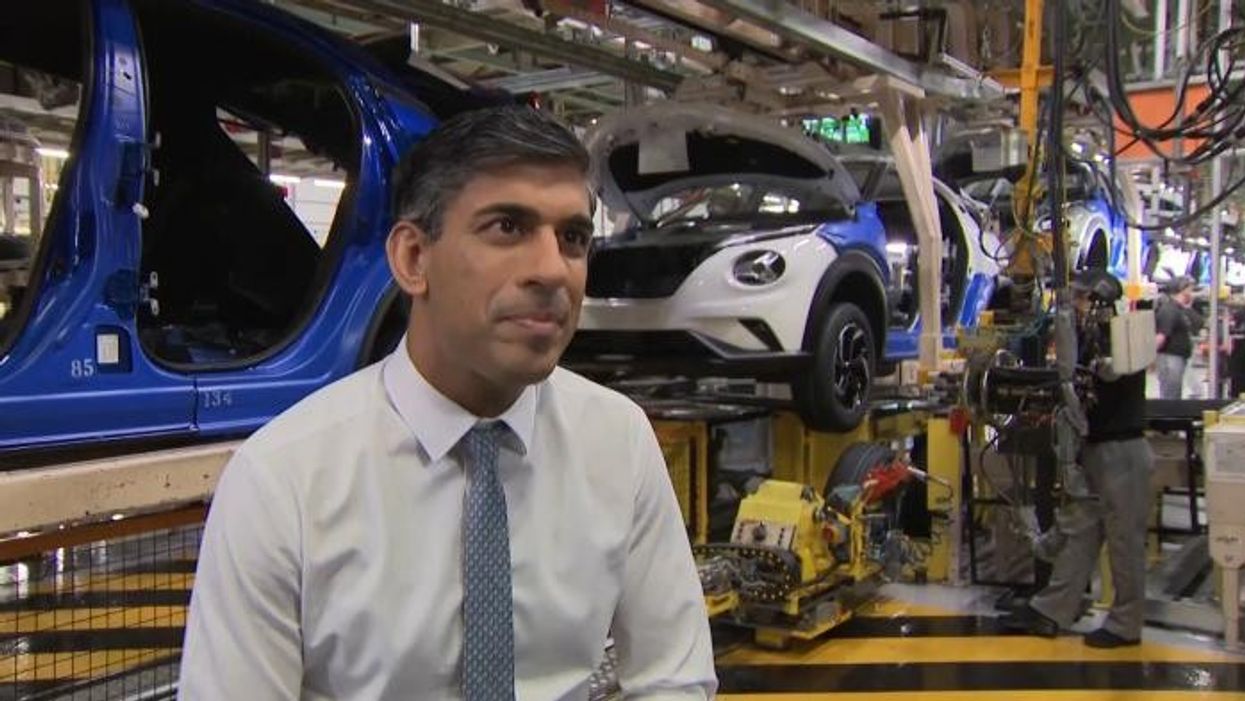New law changes could see motorists and car brands fined from January
Don't Miss
Most Read
Trending on GB News
Drivers are being warned of major new driving law changes being introduced over the coming months that could impact motorists up and down the country.
With 2024 around the corner, a new batch of driving laws are set to be rolled out in a bid to make the lives of motorists easier, with updated guidance on electric cars and driving laws.
Last year saw the Government and local authorities launch new rules including London’s Ultra Low Emission Zone expanding, Wales slashing speed limits to just 20mph and Scotland banning pavement parking.
GB News has rounded up all the biggest new driving law changes set to be introduced in January 2024 which motorists need to be aware of.

New driving licence rule changes are set to launch in January
GETTY/PA
Expat driving licences
British drivers in Portugal are currently able to use their UK driving licences until December 31, 2023, under European Union laws.
However, from January 1, motorists who are able to meet certain conditions can continue to use their UK licence if they are residents.
The requirements include if they are under 60, their driving licence photocard has not expired, their licence was issued or renewed within the last 15 years, they are only using their licence to drive vehicle categories A and B and they are not disqualified from driving.
If someone does not meet these requirements, they will need to start the process to exchange their licence by the end of March 2024 to stay on the road.
ZEV mandate
From January 1, car manufacturers must ensure that at least 22 per cent of car sales and 10 per cent of van sales are fully electric as part of the Zero Emission Vehicle (ZEV) mandate.
These targets will slowly increase over the coming years, reaching 80 per cent of car sales by 2030 before all new car and van sales are required to be zero emission in 2035.
Manufacturers who do not meet the new thresholds can be hit with huge fines including £15,000 per car and £9,000 per van.
The aim of the new mandate is to boost the number of electric cars manufactured by brands, which will force the price of new EVs down and introduce new offers for people looking to invest in electric.
Electric car tariffs
Just days before a critical deadline, the UK and European Union agreed to extend trade rules until 2026 concerning the sale of new electric cars.
Rules of origin requirements would have been introduced on January 1 after post-Brexit negotiations and would have seen tariffs of 10 per cent imposed on car sales between the UK and EU if at least 45 per cent of the vehicle’s value did not originate in the two areas.
Previous estimates from the Society of Motor Manufacturers and Traders (SMMT) found that drivers would have seen the price of EU-made electric cars increase in price by £3,400 had the 10 per cent applied.
Prime Minister Rishi Sunak called it a “breakthrough” and said it would come as a huge relief to the industry, while Mike Hawes, chief executive of the SMMT said it was a win for motorists, the economy and the environment.
LATEST DEVELOPMENTS:
- New driving licence rules are 'welcome' but urgent demands call for further law changes as a 'priority'
- Drivers concerned about petrol and diesel price hikes ahead of major fuel duty announcement
- Chinese electric car brand shows off EV that travels 1,000km on a single charge with UK launch expected soon

IDP changes could be announced in January 2024
International driving permits
In a recent update, the Driver and Vehicle Licensing Agency (DVLA) announced that it had renewed a contract to ensure that Post Office branches could continue to offer DVLA services potentially until 2026.
Under the terms of the existing contract, which runs until March 31, 2024, Post Office Ltd provides International Driving Permits (IDP) to those who need them to travel abroad.
IDPs are not included in the new contract and are subject to a separate ongoing procurement exercise, the outcome of which is expected in January 2024.
An IDP costs £5.50 and may be needed to drive in some European Union countries and Norway if someone has either a paper licence or a licence issued in Gibraltar, Guernsey, Jersey or the Isle of Man.









